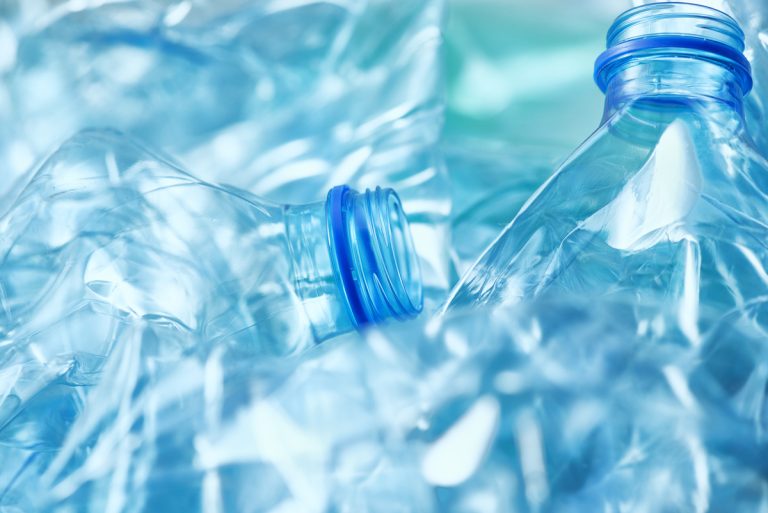With over 30 years of recycling programs, high consumer adoption and the move to extended producer responsibility (EPR), Canada should be a global leader in enabling a fully circular economy for packaging. As a best practice leader in the sector, the beverage industry continues to be at the forefront of driving transformation and progress in the collection, recycling, and repurposing of its packaging from coast to coast. The Canadian Beverage Association, the leading voice for Canada’s non-alcoholic beverage sector, and its members are focused on making recycling more convenient for consumers and helping beverage producers access recycled materials to increase recycled content in packaging. What is next? It is time for beverage producers, recycling affiliates, and governments at all levels to close the loop, facilitate harmonization, and improve consumer experience with a national recycling framework.
Beverage producers view EPR and the increased use of recycled content as essential components in driving the circular economy forward. Under the beverage container stewardship and EPR programs, non-alcoholic beverage producers are responsible for reporting and funding (in part or in full) the management of beverage containers and related packaging at end-of-use. This has led to the beverage sector being instrumental in the development and operations of beverage container collection programs in Canada, with PET bottles now considered one of the most recycled items across the country.
In Canada, beverage container recycling programs achieve recovery rates between 65% and 85%. The deposit programs in Yukon, Northwest Territories, Saskatchewan, Nova Scotia, Prince Edward Island, and Newfoundland and Labrador are all operated by government or public agencies. CBA supports the transition of these programs to EPR to improve both the quantity and quality of what gets recycled. This transition will take several years as producers work towards increasing the collection of plastic bottles. CBA is also working with the Beverage Container Recycling Network of Canada, beverage producers, and Environment and Climate Change Canada to achieve greater harmonization of beverage container recycling programs.

Streamlined Recycling for All Canadians
A national recycling framework would provide the standardization, streamlined processes, and efficiency needed to increase recovery rates across Canada. This framework would provide several key benefits:
- Improved Consumer Experience: Harmonized recycling practices would provide clarity for consumers. Standardized collection methods, including what beverage containers and packaging can and cannot be included in recycling systems. This would make recycling more straightforward and intuitive.
- Closing the Loop for Canadians: The demand for recycled PET in beverage container manufacturing currently exceeds market supply. A national framework could establish a system to prioritize the return of food-grade recycled materials to producers, enabling greater circularity.
- Opportunities to Reinvest in Canada: A national focus on infrastructure would unlock savings due to the significant economy of scale associated with recycling. Recycling affiliates could work together to invest in processing facilities, optimize transportation routes, and create a more predictable and stable market for recycled materials.
Facilitating Collaboration, Innovation and Data-Driven Results
The success of a national recycling framework hinges on collaboration. The federal government can act as a catalyst, fostering communication and understanding, but success ultimately lies at the provincial level. To achieve the required collaboration, we recommend the following:
- Engaging with the Canadian Council of Ministers of the Environment: The Federal Government should use this existing leadership mechanism to build consensus and understand the Provinces’ needs. The solutions to improve our recycling systems are not top-down. The provinces and territories need achievable targets and need to be invested in a pathway to meet them.
- Supporting Innovation and Research: Financial incentives and grants on the federal level can encourage investment in innovative recycling technology. EPR requires the beverage sector to fund the costs of recycling, meaning additional financial support could go towards the continuous improvement of the system while minimizing the burden on taxpayers.
- Investing in Data Collection: A national framework requires robust data to track progress. By leveraging existing data collection systems, we can gain valuable insights into our recycling system’s effectiveness and identify areas for improvement.
The Road to a Sustainable Future
Canadian beverage producers believe we can achieve greater circularity for containers and packaging. A national recycling framework is an opportunity for collaboration, innovation, and leadership to meet our goals. By working together, we can create an evidence-based recycling system that empowers provinces and territories, strengthens our recycling infrastructure, and enables Canadians to be better stewards of our environment. Now is the time for Canada to work with industry and enable a pathway to a truly circular economy.
If you are interested in the need for a national recycling framework, CBA will host a reception for elected officials and staff in the evening on April 29th, 2024. Please contact Ryan Singh – Director of Policy and Government Affairs (ryan@canadianbeverage.ca), for event details.
Learn more at www.madetoberemade.ca.



